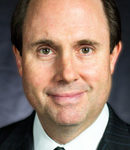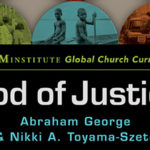Posted: 10/29/04
'God is not nice,' nor is he one of us, theologian insists
By Bob Smietana
Religion News Service
CHICAGO–Contrary to popular belief, God is not an American, one of us, religious or a capitalist. He's not very nice either, says Stephen Long.
Unfortunately, says Long, too many Christians prefer “the nice god” to the God of the Bible.
Long, who teaches systematic theology at Garrett Evangelical Theological Seminary, is one of six scholars whose essays appear in “God is Not,” a book from Brazos Press that takes on “culturally misinformed views about who God is.” The title of the book comes from Thomas Aquinas, who argued that “we cannot know what God is, but only what God is not,” says editor Brent Laytham.
In his essay, “God is not nice,” Long reworks a famous section from Isaiah, where the Old Testament prophet is terrified when he sees God “sitting on his throne, high and lifted,” surrounded by angels crying “Holy, Holy, Holy.” The nice god, by contrast, is seated on a lawn chair, wearing a Chicago Cubs hat, writes Long. And the angels call out “Nice, nice, nice is the Lord of Hosts; the whole world is full of his niceness.”
Long, Laytham and the other essayists are all members of the Ekklesia Project, a group of scholars, pastors, and lay people who believe the modern church has forgotten its true calling. Ekklesia–taken from the New Testament Greek word for church–members believe Christians owe their ultimate allegiance to the church, not to their country, class or ideology.
When churches forget that, the group's website at www. Ekklesia.org argues, “they turn the clear and unambiguous call of Jesus and the Holy Spirit into a confused and contradictory mix of caution and self-interest.”
The purpose of the Ekklesia Project is to “remind the church of its true calling as the real-world community whose primary loyalty is to the Body of Christ, the priorities and practices of Jesus, and the inbreaking kingdom of God.”
About 120 people attended Ekklesia's annual conference recently at DePaul University in Chicago. DePaul University philosophy professor Michael Budde calls the group “friends we didn't know we had,” who are drawn together by a sense that something was missing from their faith.
“Most people share this deep sense that there has to be more to being the church, to being disciples, that what I have lived out so far,” he said.
Budde and Stanley Hauerwas of Duke Divinity School co-wrote a pamphlet, posted on the Ekklessia Web site, called “Subversive Friendships,” which outlines some of the group's goals. One of them is to “make the church feistier and more self aware.”
“We have no use for happy and/or 'friendly' churches,” they wrote. “We do not desire to see the church grow using the manipulative strategies of the church growth movement. We do not want our churches to 'entertain' us by trying to be an alternative to the American entertainment industry. If the church tries to compete with TV, then the church is already lost.”
The conference theme came from the song of Mary in Luke 1, which describes the “upside down kingdom of God”–where the mighty are knocked down and the lowly are exalted; where the rich are hungry and the poor are satisfied.
But Jonathan Wilson, conference presenter and professor of theology and ethics at Acadia Divinity School in Nova Scotia, said that the “upside-down kingdom of God” is a misnomer. Instead, he said, it should be called “the right-side up kingdom of God.”
“In God's creation, the current state of affairs is upside down,” Wilson said. “The kingdom of God comes not to turn things upside down, but to turn things right-side up.”
At a time when politicians are debating how much influence the church has on the state, Ekklesia members worry about the influence of the state on the church.
Part of one afternoon session centered on getting the American flag removed from church sanctuaries.
“The American flag does not belong in the chancel,” Hauerwas said, “partly it's because people think that it is more significant than the sacrifice of the Eucharist–and when that happens you have idolatry.”
Hauerwas added that the church is an international community, connecting people across national boundaries.
That's a theme taken up by Ekklesia member Michael Baxter in an essay titled “God is not an American.”
“In a time of war,” Baxter says, “the challenge of Christians, scattered among the nations of the world, is to live as one body of Christ, and to pledge their allegiance not to one nation under God, but to one church under God.”














We seek to connect God’s story and God’s people around the world. To learn more about God’s story, click here.
Send comments and feedback to Eric Black, our editor. For comments to be published, please specify “letter to the editor.” Maximum length for publication is 300 words.